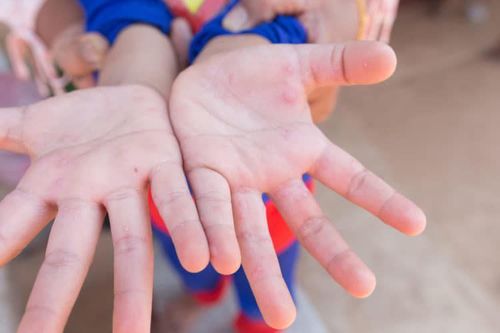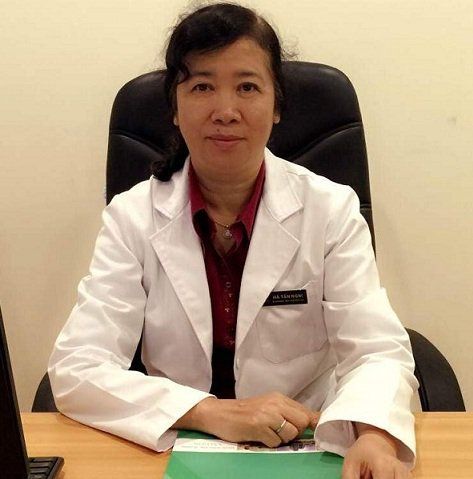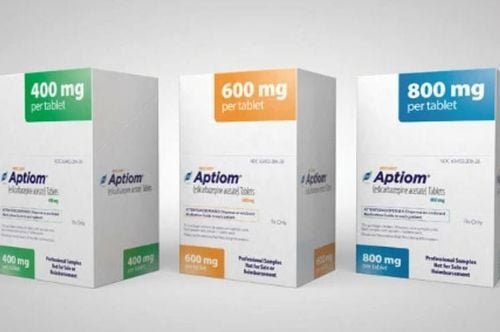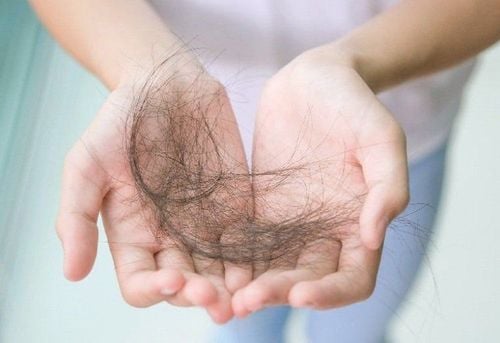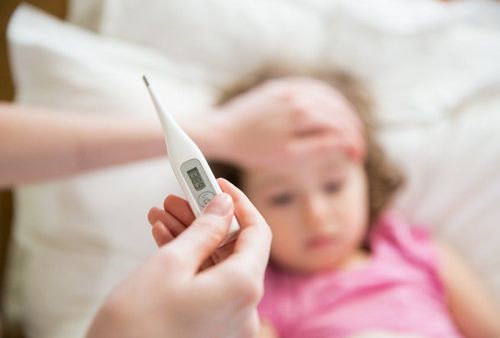This is an automatically translated article.
The article was professionally consulted by BSCK II Tran Thi Linh Chi - Head of Pediatrics - Neonatology Department, Vinmec Hai Phong International General Hospital.And Doctor Phan Ngoc Hai - Department of Pediatrics - Neonatology - Vinmec Danang International General Hospital
Fever is a very common phenomenon in young children and has the potential to cause dangerous complications. However, children with fever do not always have to take fever-reducing medicine. Parents need to properly understand and have timely solutions to help their children overcome the fever effectively.
1. Children only really have a fever from 38 degrees C
Many parents, because they are so worried when they see that their child has a fever of 37.5 degrees Celsius, immediately give them fever-reducing medicine. In fact, a child's body temperature at this temperature is not really considered a fever. Normally, a baby's body temperature, even a newborn's, can range from 37°C to 37.8°C. Thus, a child with a fever of 38 degrees Celsius really needs medical treatment.In addition, human body temperature also depends on many objective factors, such as movement, weather, clothing and temperature measurement location. Specifically, children only really have a fever when:
Oral temperature > 37.5oC Armpit temperature > 37.2oC Ear temperature > 38oC Anus temperature > 38oC
2. Fever is a response of the healthy body
Fever is essentially an immune mechanism against the invasion of viruses and bacteria. When the body is attacked by agents such as viruses or bacteria, the immune system sends signals to the brain, regulating the increase in body temperature to block these agents. Therefore, if a child has a fever below 38 degrees Celsius, parents should not be too worried.
Fevers are likely to last for 2 - 3 days. On the other hand, parents can recognize the severity or lightness of fever through the child's behavior. If the child has a fever but is still flexible, able to eat, drink and play lightly, parents do not need to be too worried. Signs of fever are only dangerous when the child shows signs of fatigue, lethargy, convulsions.
Children's behavior also shows the most obvious damage caused by fever. Children with a fever of 39 degrees Celsius (or below 40 degrees Celsius) usually do not have significant lasting consequences, the brain's temperature-stabilizing mechanism will help the body control some of the fevers below this temperature.
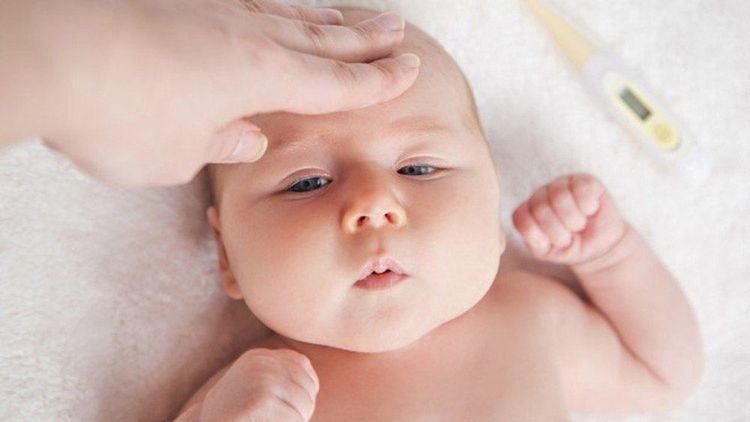
3. When should I give my child fever-reducing medicine?
Because fever is essentially a beneficial response of the body, parents should only use antipyretics for children with a fever of 38.5 degrees Celsius or higher. On the market today, there are many antipyretic drugs that can be used suitable for children, in which the drugs containing Paracetamol are the most common and safest.
However, do not arbitrarily combine many antipyretic drugs for children to use because the effectiveness will not increase, but many side effects such as stomach irritation, gastrointestinal bleeding, liver damage will occur.
When the child is still awake and able to drink water, just give him plenty of water. The infusion of children is not necessary at this time. Infusion is only prescribed by a doctor for children with severe dehydration and is carried out in a medical facility.
4. Proper handling when the child has a fever of 38 degrees C
4.1. Fever-reducing medicine Using fever-reducing medicine will help children feel more comfortable and lower their body temperature to about 1-1.5 degrees Celsius. Fever-reducing drugs should only be used when absolutely necessary and should be discontinued when resolved. the symptoms.4.2. Cooling and Cool Bathing A cool bath is placing a child in a tub and covering the child's body with warm water (slightly lower than body temperature, usually 2 parts cold one part boiling water) all over the body. The baby's body temperature drops as water evaporates through the skin. Therefore, parents should not cover the child with a wet towel or bathe the child with cool water.
Cooling should be combined with the use of antipyretic drugs when the child cannot tolerate the medicine.
4.3. Increase hydration and electrolytes Fever increases the risk of dehydration in young children. To compensate for the loss of water, parents should increase the child's water intake. Children with fever may not feel hungry and there is no need to force them to eat. However, for drinks such as fresh milk (cow's milk or breast milk), powdered milk and water, it is necessary to drink enough and often. Older children can be given powdered food, soup or cold ice cream. In addition, electrolyte solutions and juices can be used to restore the immune system. If a child refuses to drink water or cannot drink, parents should consult a doctor.
4.4. Children with a fever need rest. Fever is a common cause of fatigue and pain in children. During illness, parents should encourage children to rest as desired. It is not necessary to force your child to sleep or continue to rest if he is feeling better and wants to have some light play. Children can return to school or participate in other activities when their body temperature has returned to normal after 24 hours.
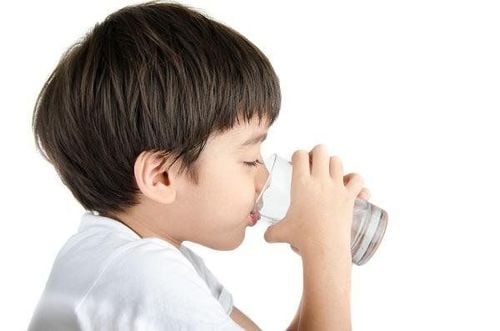
5. Cases in which children need to be taken to a medical facility
Parents need to take their child with a fever to see a doctor immediately if they notice the following signs:
The child has a fever before the age of 2 months. Fever over 40 degrees C. The baby is crying uncontrollably or is very irritable. Babies cry every time they move or when their parents touch them. Children are sleepy and difficult to wake up. There are signs of unusual neck stiffness. Rash on the skin. Difficulty breathing and does not improve after clearing the child's nose. The child cannot swallow food, cannot suckle, cannot drink water. Vomiting a lot. Diarrhea, vomiting blood. The child has a convulsion. The child looks very weak and exhausted. Especially in the epidemic season, the weather changes erratically, children are at risk of contracting diseases and leading to fever. Parents need to pay special attention to the symptoms of a child with a fever of 38 degrees in order to promptly handle or take the child to the hospital for treatment, to avoid unfortunate consequences.
Pediatrics department at Vinmec International General Hospital is the address for receiving and examining diseases that infants and young children are susceptible to: viral fever, bacterial fever, otitis media, pneumonia in children, .... With modern equipment, sterile space, minimizing the impact as well as the risk of disease spread. Along with that is the dedication from the doctors with professional experience with pediatric patients, making the examination no longer a concern of the parents.
If there is a need for consultation and examination at the Hospitals of the National Health System, please book an appointment on the website to be served.
Please dial HOTLINE for more information or register for an appointment HERE. Download MyVinmec app to make appointments faster and to manage your bookings easily.





